His name is 최수종 (Choi Soo-jong) and he’s a popular actor, known for playing the biggest historical figures, often Kings and generals throughout his career. He is 61 years old—his looks barely changed for the past 30 years.
장나라 (Jang Na-ra) is an actress and used to be a singer too. She is 43. I think this picture was taken 2 years ago. She’s of the special case of the special cases when it comes to not aging. Someone put together this mosaic of her past pictures a few years ago. It’s uncanny.
김희선 (Kim Hee-seon) also is an actress and often dubbed the “prettiest Korean woman” by my generation of men, say, over 40 years of age. She is now 47. Picture from couple of years ago, but she looks exactly the same now.
I think this picture is also from 2 years ago—doesn’t matter because he hasn’t aged a day for the past 20 years, it seems. His name is 이승환 (Lee Seung-hwan) and he’s a singer/songwriter. One of my favorite artists for about 20 years. He is now 58.
I used to think that these people in show biz must spend ungodly amounts of money on dermatologists, injections, and other procedures, but started wondering, wait, my wife never spent any money on injections/procedures, but she gets mistaken, at 54, for a 30-something all the time. (I really do have a lot of things to be thankful for.)
I’m obviously no expert in this field, and from what I’ve read over the years, it mainly comes down to 3 factors. To better understand the first and probably the most impactful reason, we need to ask, what is aging?
No one has a definitive answer, according to the National Institutes of Health—only theories as to what happens to a human body as we get older. Mostly, it’s a natural process at the cellular level where things happen (produce more of something or less of something, causing imbalance) that make facial and other bones to shrink, and the outer skin (the largest organ of a human body) to lose elasticity—wrinkles.
Quite clearly, these are two different people, but shown for illustrative purposes. Picking out one facial area as an example, as bones shrink, the area known as “ergotrid” (인중, between upper lip and bottom of nose) lengthens, lips get thinner, and orbital and oral cavities (eye sockets and mouth region) “sink” inside. The rate and the magnitude of this deterioration is different for different individuals but does happen to everyone, regardless of race.
Anatomically, Koreans (Asians) are born with bigger and thicker cheek and jaw bones and the mouth area is slightly more protruding. On top of that, Koreans have thicker and thus firmer outer skin layer, compared to white Caucasians. So, bone shrinkage and loss of skin elasticity happen at a slower rate for Koreans (Asians). I guess you can say “we have it in our DNA.” Ha!
Second, we can point to the fact that East Asians in general and Koreans in particular have historically been aversive to outdoor activities—less exposure to the Sun. Tanning never caught on in Korea, and people always, always use the sunblock, rain or shine.
This was the best sunblock we’ve ever used. Bar none, regardless of the price—we’ve used $30 per bottle sunscreens. Do you know how much this was in Japan when I bought them a few months ago? 600 yen per. That’s less than $4. You can buy one from Amazon at a bargain price! of $15. Or, $40 for a 3-pack.
What I’m trying to get at is the fact that Korean and Japanese companies have excelled at developing skincare products that are inexpensive and very effective. From the 1980s to the early 2000s, the expensive French beauty products were all the rage, and being able to afford them was a sign of stature in Korea. Not so much anymore.
Beauty industry in Korea has taken off in recent years. It coincides with the popularity of K-pop and K-drama worldwide, and it stands to reason that they would have a symbiotic relationship. And the above numbers are an indirect testament to the overall quality of these low to moderately priced K-beauty products.
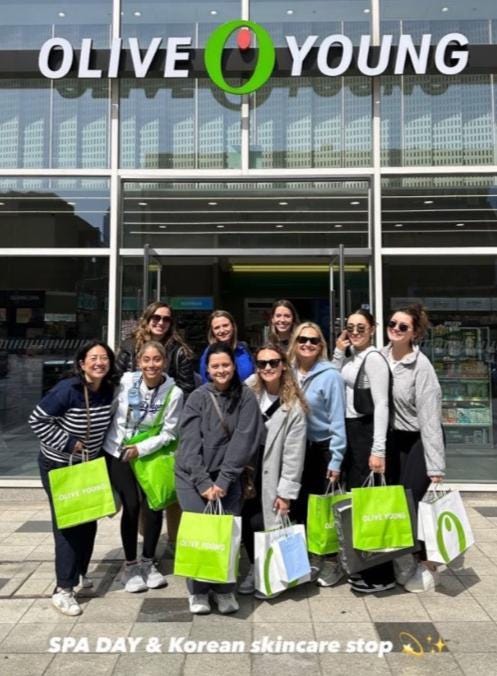
Consumer demand drives product innovation. Or, is it the other way around? Regardless…
Korean and Japanese women (and men! for that matter) spend the most on skincare products in the world on a per capita basis. The key phrase here is the people of Japan and Korea “tend to prioritize this expenditure over others.” By and large, they meticulously take care of their skin at night before they go to sleep and before they go out the next morning.
Third, plastic surgery is huge in Korea—to the point where Seoul is known as the Plastic Surgery Capital of the World. The Korea Tourism Organization even promotes it on its English version website. I guess the practice is so widespread and socially accepted that there are no qualms about doing so as a government agency.
My surgeon friend in Seoul (breast cancer specialist) once told me to get it done in Seoul if I ever was going to get a plastic surgery. Umm, OK, thanks for the advice but I don’t think so. His reasoning was, Korean plastic surgeons have the best hand skills to begin with, they’ve done it so many times (10,000-hour rule?), and therefore they have the capability to do it in such a subtle way that people can’t immediately notice the difference after the procedure(s).
As abovementioned, Koreans have a different bone structure that makes them appear to age slower. But there is a catch. Because of it, Koreans tend to develop deeper and more defined nasolabial folds, or 팔자주름 (wrinkles that look like the Chinese character for 8, 八).
Out of curiosity, I’ve looked up a few pricing charts for fillers in Seoul and depending on how much is needed, you can get it done for as low as $50, usually about $100~$150, at most $350. All in about 10 minutes, with no pain and immediate results.
I have no clue as to how much the same procedure would cost in the US. But I would venture to guess that it’s a lot cheaper in Seoul.
So, there you have it. Why Koreans generally look younger than their age? DNA, religious practice of using sunscreens, low-cost and effective skincare products, and affordable and easily accessible plastic surgeries/procedures. And!! Probably diet has something to do with it too.




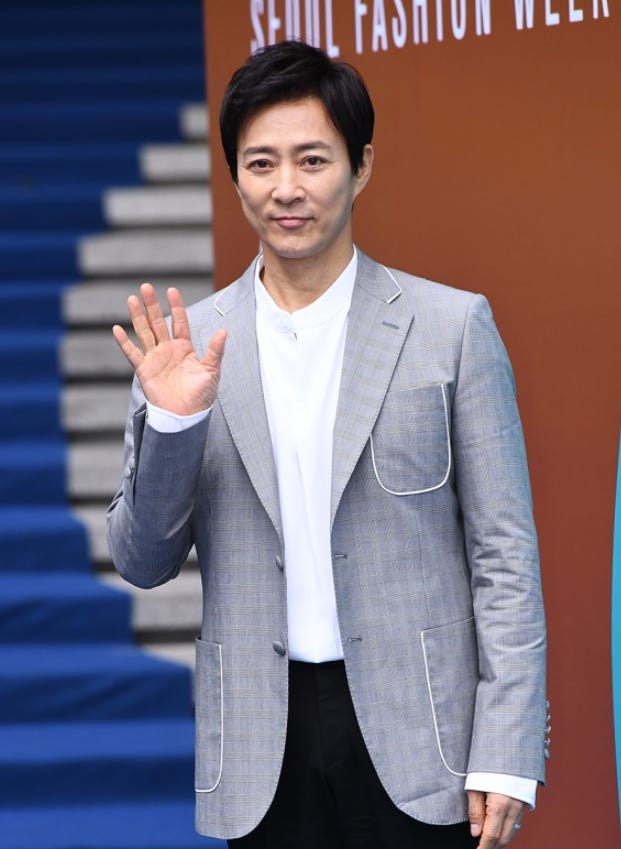
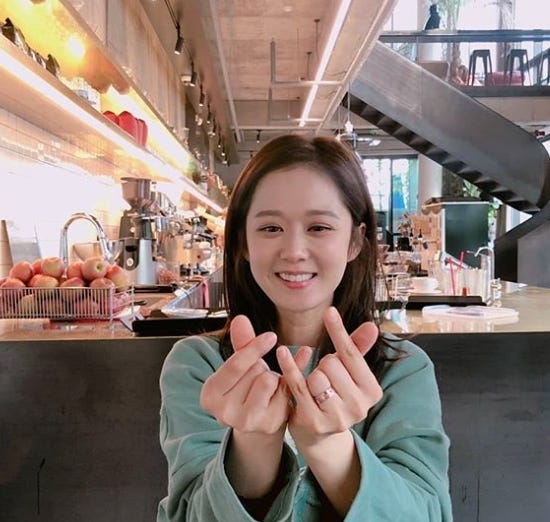
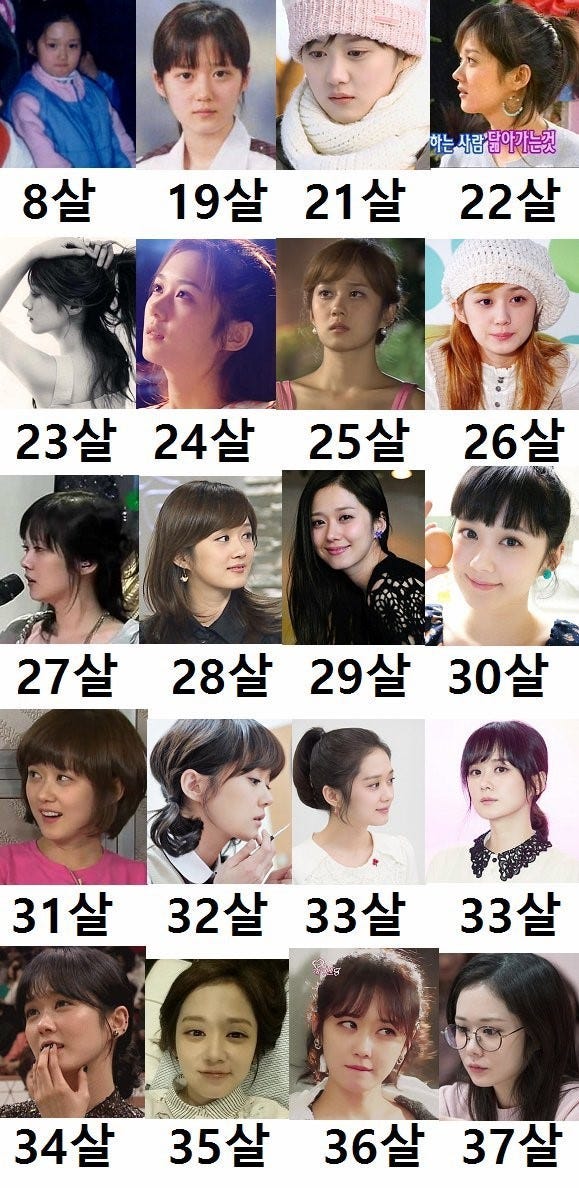


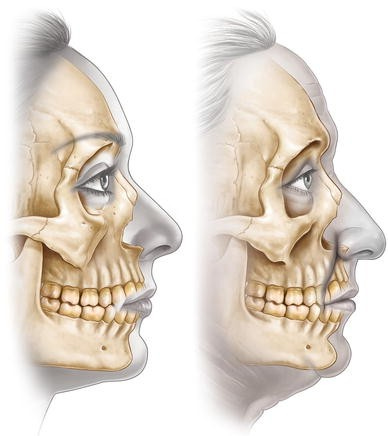

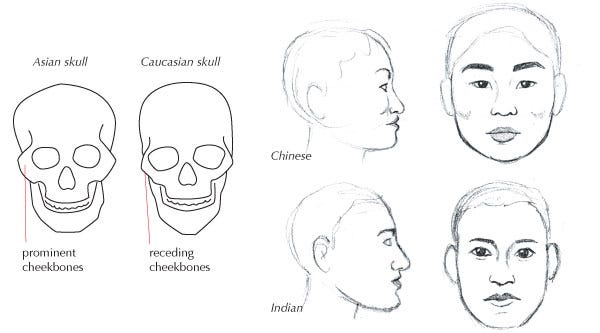




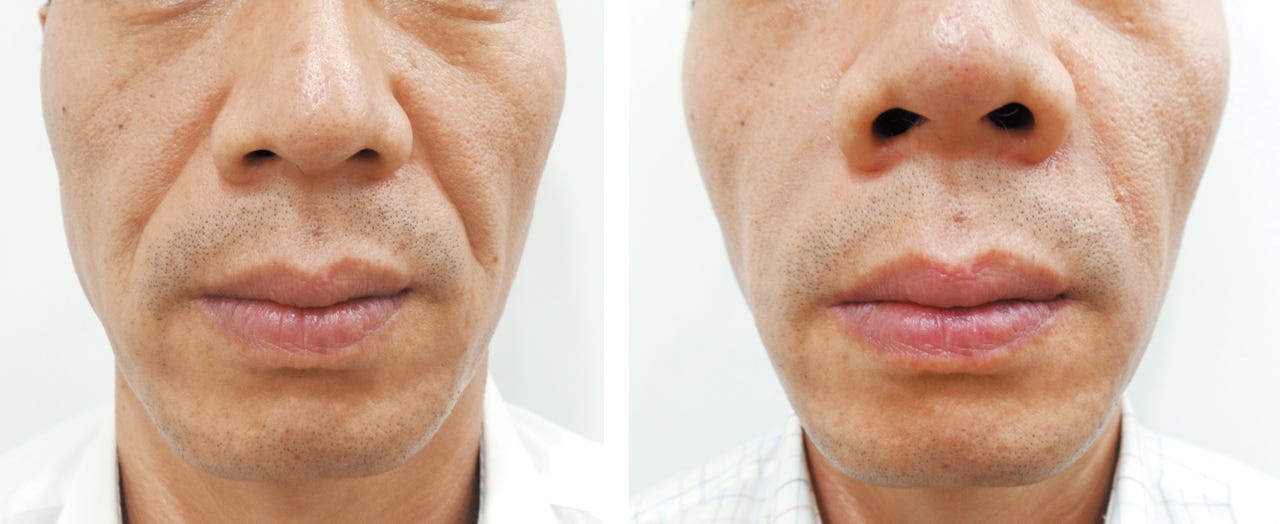
Compared with?
Your choice of topics always amazes me. Recently one of my 23 yr old friends went to a K-pop concert in Boston, MA. She told me the name of the group, Lucy, which at my age I had never heard of, so I looked them up. They looked VERY young, so I continued on to see what the singers' ages were. It turns out they were between 28 and 32 yrs. My young friend's mother said it all. She asked her daughter why she was going to a concert by 13 year olds. It made me chuckle; I was happy to know I wasn't the only one who thought the 30 year old men looked like teen agers.